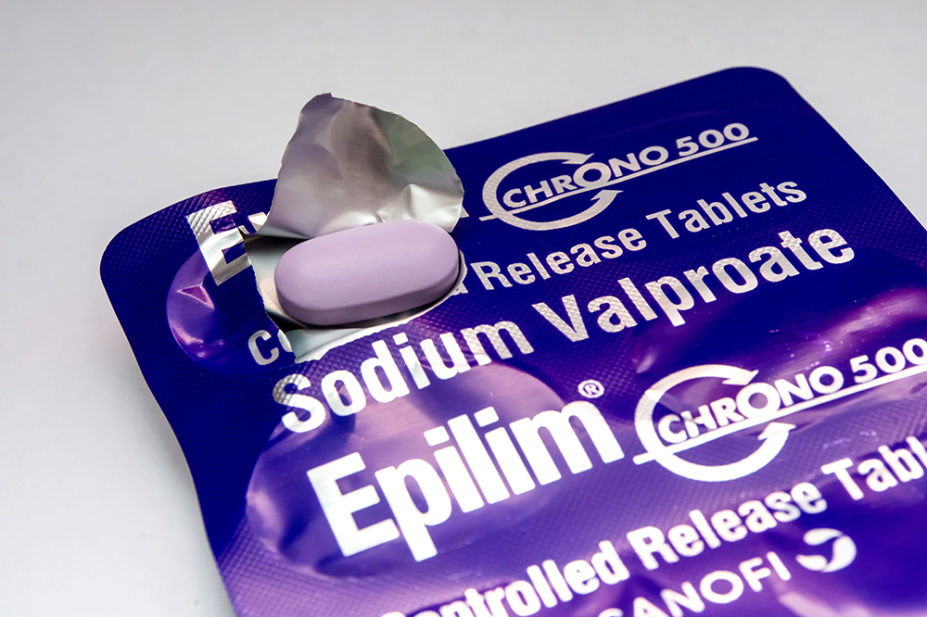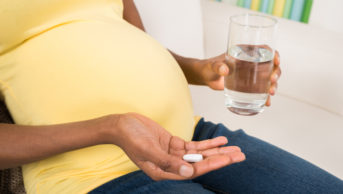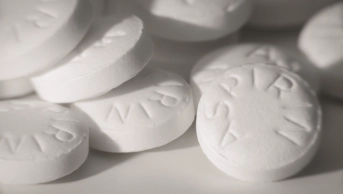
Alamy Stock Photo
Some 180 women were prescribed valproate, a medicine used to treat epilepsy and bipolar disorder, during their pregnancy within a 2.5 year interval, NHS data has revealed.
The data, published in the newly launched Medicines in Pregnancy Registry on 11 February 2021, also found that 16 of the women had a prescription for valproate for the first time during pregnancy. The registry covers valproate prescribing between April 2018 to September 2020.
The Medicines and Healthcare products Regulatory Agency (MHRA) had announced in April 2018 that, under new licensing rules, valproate must no longer be prescribed to women or girls “of childbearing potential” — defined as those aged between 14 and 45 years — unless they are supported on a pregnancy prevention programme (PPP), owing to its link to developmental disorders and birth defects.
The PPP is a system of ensuring all female patients taking valproate medicines have been told and understand the risks of using the medicine in pregnancy. As part of the system, patients must sign a risk acknowledgement form; be on highly effective contraception if necessary; and see their specialist at least every year.
However, a report from the Independent Medicines and Medical Devices Safety Review in 2020 found that “as data emerged on the risks of the use of sodium valproate over the decades, it took too long for action to be taken by the healthcare system”. It also said that “despite the efforts of the [pregnancy prevention programme], women are still becoming pregnant while [taking] valproate, without any knowledge of the risks”.
It estimated that, each year, “hundreds” of babies are born “exposed to sodium valproate, despite the teratogenic risk being well recognised and undisputed”.
The report called for a register of all women taking any antiepileptic drugs who become pregnant, which would include mandatory data reporting on them and their children over their lifetimes. It added that all women currently on sodium valproate should be contacted for a medication review.
In order to monitor the implementation of, and adherence to, the PPP; understand changes in the use of valproate and the impact of these changes on women and their children; and facilitate further research into outcomes following the use of valproate in pregnancy, the MHRA and NHS Digital initiated development of a valproate registry.
According to the first data to be included in the registry, 47,532 females aged 0–54 years were prescribed valproate on one or more occasions between April 2018 and September 2020.
There was a reduction of 5,353 in the number of females who were prescribed valproate in a month, from 27,448 in April 2018 to 22,095 in September 2020.
In September 2020, more than 8,800 valproate prescriptions were for women aged 16–44 years, 10,799 were for women aged 45–54 years, and 572 and 1,871 were for females aged 12–15 years and 0–11 years, respectively.
Of the 47,532 females, 462 females had a total of 490 pregnancies identified since April 2018. Around 240 females had their valproate prescription stopped prior to their pregnancy, while 180 females were prescribed valproate in one or more months of their pregnancy.
Claire Anderson, chair of the Royal Pharmaceutical Society’s English Pharmacy Board, said: “Whilst we welcome and acknowledge this data that shows a decline in valproate prescribing, and a lower rate of pregnancy exposure, these findings highlight that there is still much work to be done to ensure that patients are not prescribed valproate medicines when pregnant.
“This report is an important step to raising greater awareness about the significant risks that valproate medicines present to pregnancies. We will continue to work closely with the MHRA and other stakeholders to ensure that there are no exposures to valproate in pregnancy.
“We encourage pharmacists and other healthcare professionals to ensure they inform patients of the risks of valproate medicines.”
For more information on valproate use in women and minimising the risks see this CPD resource, developed by The Pharmaceutical Journal alongside Sanofi.


